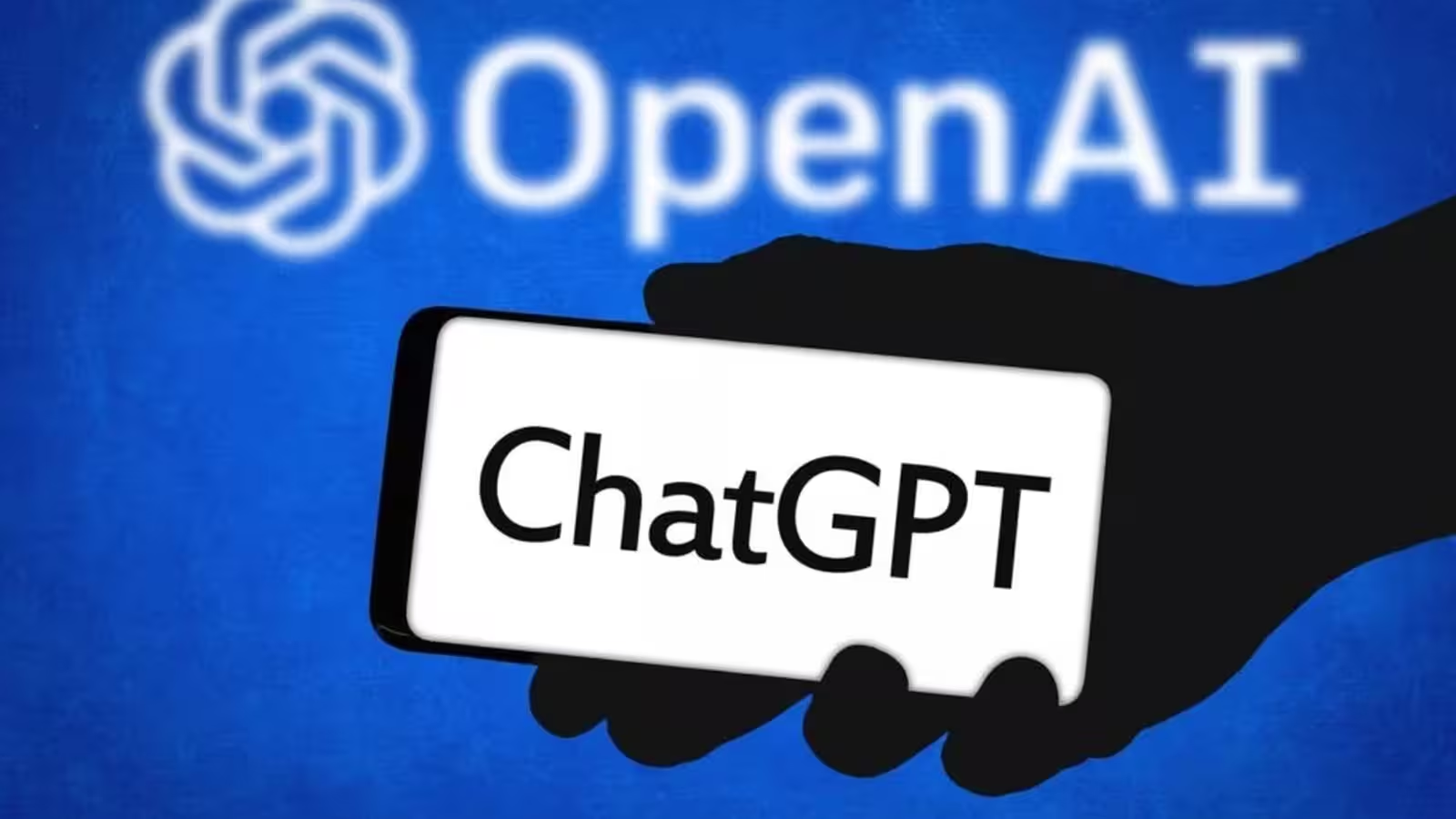7 Minutes
ChatGPT: Gen Z’s Digital Life Advisor
OpenAI CEO Sam Altman recently revealed a tech trend that confirms what many in the industry already suspected: Generation Z is turning to ChatGPT not just for quick answers or content edits, but for making big, often personal, life decisions. Speaking at Sequoia Capital’s AI Ascent event, Altman noted, “They don’t really make life decisions without asking ChatGPT what they should do.” This statement reinforces a broader shift — the rise of generative AI tools as essential resources for self-reflection, advice, and decision-making.
For Gen Z, shaped by a digital-first upbringing, climate challenges, and social uncertainty, consulting artificial intelligence for guidance seems as natural as browsing social media. But this cultural pivot comes with both significant benefits and critical risks — not only for Gen Z, but increasingly for Millennials and even older generations experimenting with AI as a digital confidante.
How Different Generations Use ChatGPT
Altman’s comments highlight nuanced usage patterns across age groups. For Gen Z, ChatGPT functions almost like a personal operating system, seamlessly woven into daily routines for everything from career planning to relationship dilemmas. Millennials — now in their late 20s to late 30s — are just as likely to use ChatGPT as a trusted life advisor, pinging it for job advice, emotional support, or help decoding ambiguous messages.
Meanwhile, older adults often use the AI tool as a smarter, context-aware alternative to traditional search engines like Google, seeking quick facts or nuanced information. The democratization of AI brings new opportunities — but it also means grappling with the implications of integrating machine intelligence into intimate decision-making.
The New Digital Support System
This shift is not merely about convenience — it reflects deeper societal needs. Many users, especially young adults, lack access to reliable mentorship, therapy, or support structures. ChatGPT’s instant, non-judgmental, and cost-free nature offers something rare: an always-available, private space to talk through dilemmas without fear of embarrassment.
When I researched the rise of AI-powered mental health support, accessibility was the dominant theme. The 24/7, anonymous format removes barriers, allowing people to seek emotional guidance or brainstorm major life changes with zero social risk. Users can rehearse difficult conversations, weigh pros and cons, and even ‘sense-check’ their logic at any hour.
Key Features of ChatGPT in Life Decision-Making
- Real-Time, On-Demand Support: ChatGPT and similar generative AI models are available anytime, providing advice instantly without queues or appointments.
- Zero Judgment or Social Cost: Users can explore sensitive, embarrassing, or taboo topics without feeling exposed.
- Meta-Cognitive Assistance: The AI’s ability to summarize thoughts, ask clarifying questions, and offer alternate perspectives can help users develop greater self-awareness — a crucial benefit for those managing ADHD, anxiety, or simply navigating complex issues.
- Flexible Use Cases: From career crossroads to relationship conflicts, ChatGPT’s broad knowledge base and adaptive conversation enable users to approach nearly any life scenario.
- Scalable and Private: Unlike human advisors, AI can provide support at scale, respecting user privacy and confidentially processing queries across millions of users.
The Advantages: Why Rely on ChatGPT?
1. Accessibility for All: ChatGPT bridges the gap for people who don’t have mentors, professional coaches, or close confidants. It’s available to anyone with an internet connection, leveling the support landscape.
2. Increased Self-Reflection: AI-driven dialogue can initiate thought-provoking questions, encouraging users to consider their own motivations, emotions, and alternatives in ways they might not with a rushed friend or busy mentor.
3. Safe Space for Exploration: The anonymity and lack of human judgment allow people to ‘think aloud’ about drastic moves — quitting a job, ending a relationship, changing cities — without fear of reprisal or stigma.
4. Support for Neurodivergent Users: For those struggling with attention or anxiety disorders, the AI’s patient, structured prompts can provide the scaffolding needed for effective self-reflection and decision-making.
The Hidden Costs and Risks
The Limits of Algorithmic Advice
While ChatGPT is a powerful tool, relying on it for critical personal choices comes with pitfalls. Fundamentally, AI lacks wisdom and lived experience. It can simulate empathy and thoughtfulness, but it doesn’t possess genuine intuition or emotional insight. The algorithm can’t recognize self-deception, nor does it intuitively understand the unsaid — the hidden anxieties, motivations, or cultural context that inform human decisions.
Bias and Blind Spots
Like all large language models, ChatGPT is trained on colossal internet datasets, inevitably absorbing collective biases, cultural assumptions, and outdated stereotypes. There’s always a risk that the guidance given might subtly reflect or reinforce these biases — sometimes without the user’s awareness.
The Accountability Gap
Real-world advisors are accountable for the impact of their guidance; friends care about your outcomes. But if AI nudges you toward a decision that proves disastrous, there’s no natural recourse — just a digital record of your queries.
AI Hallucinations
Generative AI is infamously prone to “hallucinations” — producing confident yet inaccurate or wholly fabricated information. For minor questions, this is harmless. With major life choices, it can be disastrous.
Emotional Substitutes
Psychologists warn of the risks in substituting real relationships with AI-driven feedback loops. A chatbot might mimic the sensation of being “heard” or “seen,” but it cannot truly empathize or provide genuine moral challenge. Such closure may be unearned, or worse, reinforce unhelpful patterns or logic.
Entrenchment and Privacy
It is in OpenAI’s strategic interest to encourage users to turn to ChatGPT for everything — advice, emotional support, daily decisions. Advanced personalization and memory features deepen user reliance, but also raise privacy questions and make disengagement increasingly difficult.
Product Comparisons: ChatGPT Versus Human Advisors
- Availability: ChatGPT is always on, whereas human advisors are limited by time zones and personal schedules.
- Empathy: While ChatGPT can mirror empathy, therapists and mentors provide lived experience and intuition.
- Cost: AI consultations are free or low-cost, compared to expensive therapy or coaching.
- Depth of Understanding: Human advisors recognize nuance and context in ways AI still struggles to match.
- Accountability: Humans are ethically responsible for their advice; AI is not.
Cultural and Market Relevance
ChatGPT’s rise as a digital advisor marks a dramatic transformation in how people seek information, comfort, and clarity. In a global context where institutional support systems are fragmented and trust in authority is low, technology steps in to fill the void. This shift is particularly pronounced for Gen Z, but as more Millennials and even Gen X users engage with AI, these tools are quickly becoming indispensable across age demographics.
The market response has been swift: from AI-powered mental health startups to career counseling bots and digital coaching platforms, the ecosystem of AI life advisors is rapidly expanding. Products are now differentiating themselves through improved privacy, more accurate metacognitive guidance, and better integration into daily workflows (spanning desktop, mobile, and even AI voice assistants).
Real-World Use Cases
- Career planning and job search strategies
- Relationship advice and emotional intelligence development
- Personal productivity and habit tracking
- Major decision brainstorming (e.g., moving cities, switching industries)
- Goal-setting and self-coaching exercises
In all these scenarios, ChatGPT’s unique blend of immediacy, breadth of knowledge, and approachable tone offers users a compelling alternative to both static information sources and traditional interpersonal supports.
Finding the Balance: Should We Trust ChatGPT with Our Lives?
Ultimately, labeling ChatGPT’s role in life decision-making as simply ‘good’ or ‘bad’ overlooks the complexity of our relationship with technology. Gen Z, along with other generations, is not turning to AI out of ignorance. More often, it’s a rational choice made in a world that feels uncertain and unpredictable — a world where traditional support networks may be absent or inadequate.
As reliance on AI grows, the key is mindful use. Ask yourself why you’re seeking advice from an algorithm. Consider what risks or connections you might be avoiding. And whenever possible, balance digital advice with human insight. Real connection, with all its messiness and missed cues, remains irreplaceable.
For many, ChatGPT is not a panacea — it’s a digital companion, a sounding board for working through thoughts or practicing tough conversations. Used thoughtfully, it can indeed enhance self-reflection and confidence. But every interaction is a trade-off: a little less human connection in exchange for convenience, privacy, and immediacy.
As we push further into an AI-driven future, recognizing these trade-offs — and making conscious choices about when, how, and why we use these tools — will determine the real value of having a digital advisor in our pockets.
Source: techradar



Comments